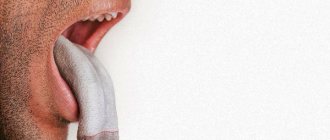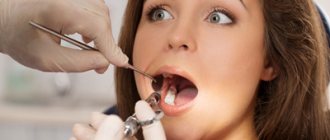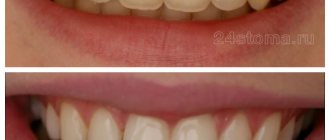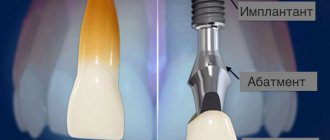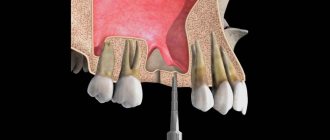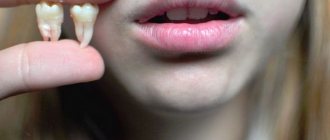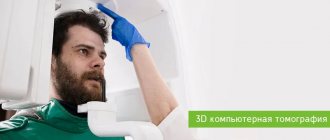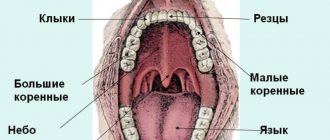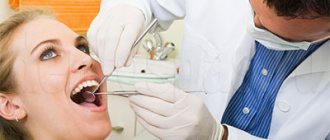Read in the article:
- How alcohol affects teeth
- Causes of toothache when drinking alcohol
- The dangers of drinking alcohol to relieve toothache
- How to relieve toothache after alcohol
It is not necessary to have thinned enamel to suffer from pain after drinking cognac, vodka or whiskey. Ethanol is a heavy poison and neurotoxin that undermines the immune system and affects the psycho-emotional state. Alcohol washes away calcium, which is part of the mineralized tissue of teeth. Because of this, people suffer from pain that is difficult to relieve with painkillers.
How does alcohol affect teeth?
There is a myth that vodka can disinfect the oral cavity and fight bacteria that cause caries or gum disease. In fact, the effect is the opposite - alcoholic drinks corrode the mucous membrane, which increases the likelihood of inflammation. Even low-alcohol cocktails wash away calcium in huge quantities, and dentin consists of it. Consequently, tissues suffer from a deficiency of this mineral and become brittle, which increases the likelihood of cracks and holes. As practice shows, alcoholics are 30% more likely to develop dental caries.
Teeth and gums also weaken because zinc, iron, phosphorus, and magnesium are additionally washed out. This causes bleeding gums. It is much worse that the soft tissues are destroyed, so the support of the teeth weakens. Increases the chance of falling out. Alcoholics face the problem of tooth loss in the third stage, when the body is in critical condition.
Prevention and treatment
The ability to prevent dry mouth largely depends on what causes it. One way or another, giving up alcohol will help you more accurately determine the cause of the problem. If you do drink alcohol, alternate alcoholic drinks with water to reduce their diuretic effects. Dry mouth can result in the appearance of ulcers on the mucous membrane: use a mouth rinse that softens the mucous membrane until salivation returns to normal. Other hygiene products designed to combat xerostomia may also help you.
Causes of toothache when drinking alcohol
Alcoholic drinks affect the natural microflora of the oral cavity. Because of this, pathogenic bacteria spread, causing caries and gum damage. The sensitivity of tissues increases, so alcoholics cannot drink hot or cold drinks - pain immediately appears.
It is necessary to take into account the fact that alcoholic beverages contain acids. This includes wine, champagne, port, cognac, and cocktails. The acid burns the mucous membrane and thins the tooth enamel. Therefore, periodontal disease, caries, and erosion develop. The natural shade changes, the color becomes yellow-gray. If a person already has fillings, dentures, bridges or implants installed, they become fragile and wear out. Often, alcoholics' fillings fall out, which leads to critical consequences - pathogenic microflora leads to inflammation of the root, which subsequently causes tooth extraction.
It is much worse if a person has expensive implants and drinks strong drinks. The probability that the implant will fly out or will not take root is very high. In the future, the doctor is unlikely to be able to install a new implant. Therefore, after surgery you need to give up drinking 100%.
Dentists identify the following causes of acute pain after drinking strong drinks:
- Pulpitis.
- Hypothermia.
- Inflammation of the trigeminal nerve.
- Caries.
- Stress.
- Thinning of enamel.
- Angina pectoris.
- Root cyst.
If you experience any discomfort after eating, contact your dentist immediately.
Alcohol and implantation: is it possible or not?
For many, alcohol is a universal means of relaxation, including during stressful situations. This is a feature of the Russian mentality. And although implantation is a painless and simple procedure, like tooth extraction, the very need to come to a dental clinic and spend about an hour in a chair causes stress for many. Of course, this fear is understandable and understandable, however, implantologists strongly recommend abstaining from drinking alcohol for at least a couple of days before surgery, as well as for at least two weeks after. Ideally, you should give up alcohol for the entire duration of implant healing (2 – 6 months)
.
Perhaps there are people around you who could afford to drink a little during the rehabilitation period and this did not affect the final result. But we must remember that there are individual characteristics of the body, and what suits one person is absolutely not suitable for another.
The dangers of drinking alcohol to relieve toothache
Often people want to save money on painkillers. They motivate this not only by savings, but also by safety. Supposedly, vodka is a pure product that does not contain dangerous chemicals. In fact, drinking alcohol before or after dental treatment only makes the situation worse. Firstly, the microflora deteriorates and the volume of pathogenic bacteria increases. Secondly, the enamel becomes thinner, which leads to cracks.
If you are planning a trip to the dentist, then drinking is prohibited. The reaction of anesthesia with alcohol is very strong, which can cause respiratory arrest or seizures. In this case, blood clotting is impaired, so there can be enormous blood loss and you will have to call an ambulance. It is much worse if the anesthesia does not work at all and the tooth is pulled out without pain relief. The terrible pain can cause a person to lose consciousness.
Milk and dairy products
The pH value of milk is approximately 6.6
, that is, milk does not harm teeth. As part of this work, the researchers compared milk from 35 cows, which allowed them to obtain this result. Moreover, the proteins (caseins) and minerals contained in milk prevent the formation of colonies of cariogenic bacteria on the teeth.
Kefir has a low pH, 4.2 – 4.6
, which is not very good for teeth (as this article tells us).
At the same time, kefir and other fermented milk products contain lactobacilli and bifidobacteria, which, among other beneficial properties, have some ability to inhibit the development of Streptococcus mutans
, but here, as they say, there are nuances, according to this study. However, no one has canceled the ability of fermented milk products to enhance the generation of saliva, which always has a positive effect on the condition of teeth.
How to relieve toothache after alcohol?
Visit your dentist right away to have your mouth examined and take photographs to evaluate the condition of the roots. No folk methods will help solve the problem, much less another glass of vodka. It is important to deal with the root cause. If after complex treatment a person does not stop drinking, there will be serious consequences.
You will get rid of alcoholism 100% anonymously. Inpatient and outpatient treatment programs have been developed, including:
- Detoxification – removing toxins from the body, replenishing mineral/vitamin deficiencies, restoring water-salt balance.
- Medical and social rehabilitation - work in groups, drug therapy, visits to a psychologist.
- Social and psychological rehabilitation.
- Social adaptation.
You can get a free consultation and make an appointment with a narcologist by calling 8.
Wine
In the vast majority of cases, the hydrogen index of wine is 3-4
(see this page). It doesn't matter whether the wine is white or red, in terms of pH, this drink is harmful to your teeth.
Red wine also has a negative effect on the color of teeth. But: according to this study, the substances it contains (proanthocyanidins that wine gets from grapes) have the ability to fight cariogenic bacteria
. Of course, excessive consumption of wine should not be justified by this property.
Plain and sparkling water
There is nothing better than ordinary drinking water for your teeth.
. Its pH ranges from 6.5 to 8.5, at 25 degrees – 7. Probably the only danger that water can pose in terms of dental health is a sharp temperature change that occurs when after a hot drink (for example, espresso) you drink cold water. Don't do this and everything will be fine. Drink as much water as your body requires.
Sparkling water is another matter
. Its pH is on average 3-4, that is, it is a harmful drink for teeth. Here we are talking specifically about simple sparkling water, and not about the sweet soda that we discussed above.
The properties of natural mineral water depend entirely on its source. Information about the pH of a natural mineral water can often be found on its label. Often beneficial waters of this series have pronounced medicinal properties, are sold in pharmacies and are used for certain indicators.
Total...
- Drink water when you are thirsty.
- Drink coffee/tea if you need to warm up and cheer up.
- Drink milk and dairy products if you like them and your stomach does not protest against their consumption.
- Drink soda only through a straw and in moderation.
- Alcoholic drinks... Think about more global consequences than damage to your teeth when you drink them.
Attention! This article is not indexed by search engines, so you can take it and publish it in the article section of your clinic’s website. The one who does it first will get the SEO effect. You will find other similar materials in the collection “Tell the Patient”.
Would you like to see similar materials in the blog/article section of the clinic’s website? Contact us (contact form below), we can create exclusive educational articles for you that will attract new patients to your clinic and simply help people.
Find out more about
Vodka, whiskey, cognac
If you set out to find information on the Internet about the pH value of vodka, get ready for several minutes of fruitless searching. There is no consensus on this drink: somewhere it is written that the pH of vodka is 3.5-4, somewhere it is stated that vodka is a neutral drink, GOST requires water with a pH from 5.5 to 7.8 for its manufacturing and the final product may have this indicator at the same level. The truth, as usual, is somewhere nearby: different vodkas have different pH
, that's all. Just don’t overuse it, because even if the pH of your preferred brand is normal, this does not mitigate the other negative properties of alcohol in any way.
The same can be said about other strong alcoholic drinks. For example, this study of brandy (you know that cognac is the only drink that is produced in the French province of the same name, right?) showed that the pH of the drink can range from 2.24 to 7.97. So the recommendations here are the same as for any other alcohol: be vigilant and prudent. And try not to savor such drinks
.
You forget that you need to see a doctor
Such situations, of course, arise if the patient drinks alcoholic beverages for a long period of time. Shifting the visit to the doctor by 1-2 days (after a month after installation of the implants) is allowed. But in the first week, visits to the doctor should be strictly day-to-day.
If a patient misses regular visits to the doctor, if the prosthesis is not adjusted, this can lead to disruption of the healing process of the implants and the functioning of the entire jaw system. For example, the bite changes due to improper closing of the jaws; the prosthesis will cause overload of the implants and the temporomandibular joint. Therefore, it is necessary to adhere to individual visit schedules.
Why you can’t eat after tooth extraction
Tooth extraction is a full-fledged surgical operation. It is performed under local anesthesia, in some cases general anesthesia is indicated. Sometimes suturing of the gum is required. And for patients with blood diseases, hospitalization in the department of maxillofacial surgery is indicated for tooth extraction.
After a tooth is removed, a blood clot forms in its socket. Its task is to close the jaw bones, prevent the entry of foreign bodies and pathogenic flora, prevent the development of complications, promote tissue formation and gum healing.
It is forbidden to eat food for 2–3 hours after the procedure. And until the tissues are completely healed, chew on the side of the jaw where the wound is located.
Reasons for the ban:
- pressure on the injured gum will increase pain and cause bleeding;
- food irritates the gums and contributes to the development of swelling;
- bacterial and fungal flora enters with food, which increases the risk of complications;
- the rate of tissue healing decreases;
- food damages the fibrin clot, dislodges it and exposes the internal bones of the jaw.
Surgery is stressful and, as a rule, you don’t want to eat after molar extraction. But even if you are tormented by hunger pangs, you should follow the dentist’s recommendations and wait 2 hours.
Is it possible to smoke
Smoking is prohibited for 2 hours after extraction of a molar, incisor or molar. Even if the bleeding has completely stopped. If the ichor is still secreted, then the cigarette is prohibited until it stops completely.
If stitches are required, then you will have to forget about the cigarette for 7-10 days.
Reasons for the ban:
1. Tobacco smoke can cause burns to the mucous membrane, tooth socket, and jaw tissue.
2. The products of tobacco combustion dry mucous membranes and other tissues. This helps break down the fibrin clot.
3. Nicotine reduces the rate of resorption of suture material, increasing wound healing time.
Neglecting the recommendations is fraught with the development of complications and prolonged tissue healing.
Antibiotics are prescribed, which means alcohol is prohibited
When implanting teeth, antibiotics are often prescribed (if teeth were removed before installing implants, there was pronounced periodontitis and periodontal disease). But antibiotics and alcohol are not compatible - not only your attending physician will tell you this, it is also written in the instructions for almost all drugs. The consequences can be both relatively harmless (the medicine simply will not work) or very sad - even death. Alcohol is prohibited during the entire period of taking antibiotics, as well as for at least 4 days after.
Yes, not all antibiotics cannot be combined with alcohol. But most of them. Among the unpleasant consequences are palpitations, nausea, vomiting, increased blood pressure and general intoxication of the body.
